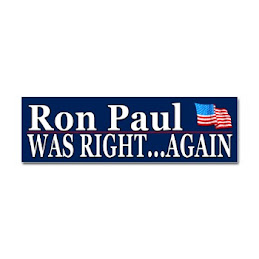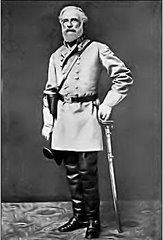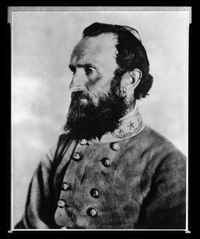The following was a paper I wrote for school. It is about the early years of American government, and whether or not the early government worked.
America’s Beginning Government
Ryan Hampton
Did America’s Constitution work? Did the American Government operate according to plan? Did the American Government operate in a way similar to or worse than the government it got away from? These are some questions that we ponder in studying the early years of America’s history. Could it be that America fought a war, lost many lives and a lot of money, only to live in a worse condition than before? Or was their fight for liberty just, upheld, and worth it?
So often in a Revolution, the new government is quickly even worse than the government thrown off. In a revolution, there are many chances to take. Was the government worth throwing off? Are the people who are throwing off such government better people anyway? Perhaps they are just power hungry themselves. Perhaps the causes for this liberty were just and well meant, but the new people who came into office wind up falling into the temptations of power.
Thomas Jefferson, America’s third President, pondered on these issues himself. He said that it is the natural tendency of things, especially government, to gain power. More and more actions become justified, and people become polarized to the extremes of big government. In governments, the government seeks to expand its jurisdiction, justify more of their actions, and ask for more money to fun these actions. Thomas Jefferson, and many of the others who recognized and feared these things, sought after a government that would last a long time under its conditions, without falling into these problems. The government they proposed promoted small government.
We are now nearly two and a half centuries after the American Revolution, and Jefferson seems right. But what about the early years? Even if the American Government today seems much like the British Government that the founders sought to either reform, abolish, or separate themselves from, perhaps the Revolution was still worth it based on the initial years. Were America’s early years good, or was it a quick strike to typical ways of the government America’s founders got away from?
When we explore the early years of the American government and whether or not it worked, we should ask two questions. First, we should ask ourselves if the government lived up to its purpose and theory, or if the founders defeated their purpose? There were some documents that the American founders drafted that did not seem to work to them, i.e. the Articles of Confederation. But the American founders properly cut off the wrong parts of this bad form of government, and sought after a better government that would stay – the Constitution. Did our founders draft a Constitution, speak so highly of it, only to forget about it? Or did they take their verbal word and written word to heart, and abide by the Constitution? The answer seems to be a resounding yes. There is no question that our founders made mistakes, but as a whole, they did abide by their word. But now we must ask the second question: was this form of government good and worth abiding by? For the dominance of America’s early years, it seems as if the Constitution worked well. The people abided by it, and it kept the government in check. The government stayed out of debt and out of trouble. The American people were free. The economy began booming, and America never in her early years experienced a depression due to inflation and fiat money – although they did exist to a degree. The Constitution worked. Therefore, unlike many Revolutions, America’s Revolution actually did make a better government. The founders of America proposed a Constitution that would in writing, limit the government to its just powers. The American founders initiated checks and balances to government. The people and founders gave much thought, fear, and study to different ideas about government, ranging from the Judeo-Christian thought to the thought of the great Greek philosophers. To support this claim that the American government originally worked well, let’s consider the facts and historical events that attest to this.
But beyond this, the many of the early leaders were fearful of God. One reason many newly established governments become worse than the abolished government, is because the people put so much trust into one of the heroes, that he can essentially become a monarch. When a leader gives into the temptation of power, he and his office are corrupted.
But such was not the case in the early years of American Government. George Washington was given an opportunity to become sole leader. The American people loved him. They would have been willing to give him full control. But Washington set the precedent. He took office, followed the Constitution, and took advice from his advisors and fellow politicians. After this, he only served two terms. He could have served longer. Everyone loved him. But he said that his time was up after two terms. He set the precedent. It would have been much harder for future Presidents to take full monarchial power.
One example of the early American way sticking to the Constitution is seen in the case of Marbury vs. Madison. George Washington shaped the role of the executive branch of government, but in this case, John Marshall set the tone for the judicial branch of government. William Marbury rightfully had the right to hold an office as a judge, but John Madison never gave him his commission as Justice of the Peace. Marbury instinctively turned to the Supreme Court. But Chief Justice John Marshall would not rule on the case one way or the other. He did believe that Marbury had the right to the office. However he also that that Marbury had turned to the wrong place. Rightly or wrongly, the Constitution did not permit jurisdiction to the Supreme Court to rule in such a case. Therefore, he did not rule in this case, setting the tone to view the Constitution as a “higher law.”
Another important figure in the early years of American government is Thomas Jefferson. Thomas Jefferson was for very limited and small government. However when he came into office as President, he wanted to do more things than he previously let on to, such as building schools, roads, and the like. But Thomas Jefferson did provide a higher view of the Constitution even in this. Although he may have wanted more things to be done with the Central Government when he became President, he only would allow such things done by an amending the Constitution. Because the Constitution was not amended to his desires, his desires did not come – at least not under his term in office.
Most of the founding fathers of America talked about small government and natural law and lived up to their rhetoric in office. Not many of the early founders pushed for an extremely intrusive Central Government. Not many founders pushed for overbearing taxes. Most of the founders placed a high regard to the Constitution. The American debt was low, and most of the people lived in peace. America was not constantly engaging in international affairs. Most of the founders practiced what they preached.
It is important to remember, however, that the government did have its problems. Fiat money came quickly. The government began to get involved in building and manufacturing things. The government was not perfect. There were political rivals. There was controversy. There were some people who pushed for some policies very much like mercantilism – a method of government our founders wanted to get rid of. Some people falsely justified government action by the Constitution. But even beyond all of this, the government worked fairly well under the early years of its Constitution. The founders never expected a perfect government. They realized that government is comprised of sinful people. This is why government is held in check. And the checks and balances fit well in the American system of government. The founders were morally minded enough to keep themselves from totally abusing power. The Constitution was written well enough to clearly define what roles the Central Government had. Despite some of the early problems, government worked reasonably well in the early years.
Perhaps the biggest controversy the early government faced was in interpreting the Constitution. Most all of the founders agreed to follow the Constitution, and did so as it fit to their terms. But some people viewed the Constitution very strictly, while others viewed it very loosely. Perhaps the most debatable phrase used in the Constitution was the “general welfare” clause. Some saw promoting the general welfare as meaning to provide government action to help the majority of people- a rather democratic idea. Others viewed it as a clause that meant for the government to show support for whatever would help everyone at the expense of no one. When one takes a straight-forward approach to looking at the Constitution, it seems as if there is no good evidence that “general welfare” could mean a general government program to help the to general mob. It rather seems most like the second of the views above – to promote that which helps everyone fairly at the expense of no one.
The early American government did embrace a small government and drafted their thoughts in the Constitution. Not everyone had the exact same beliefs on interpreting the Constitution, but as a whole, it seemed to work. And there is no reason to think that the Constitution will not work today, if we let it. The problem with America’s government today is not that we abide by a false Constitution, but that we forget about it. If we return to the basic policies held by our founders, there is no reason to think that we should see anything but an incline in sound government.
What do you think?
God bless America
God bless our troops
November 18, 2007
Ryan Hampton
Subscribe to:
Post Comments (Atom)










No comments:
Post a Comment